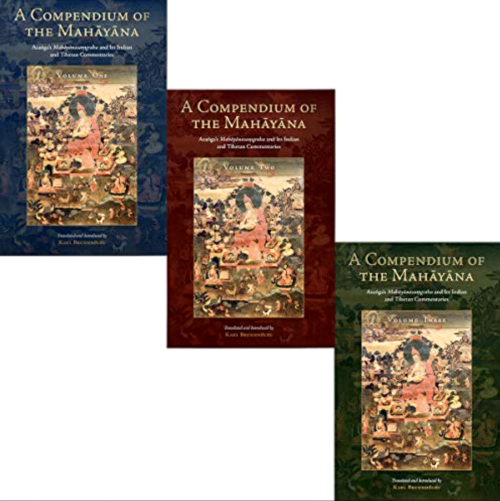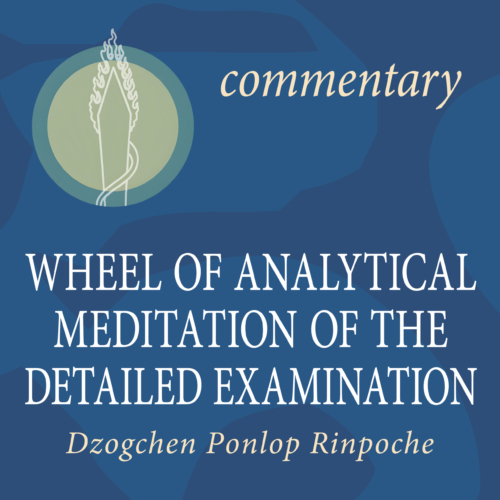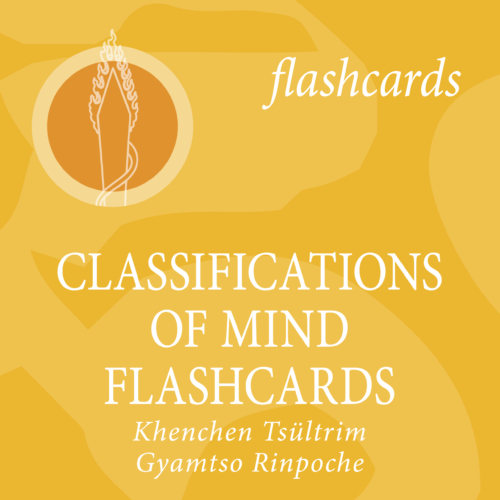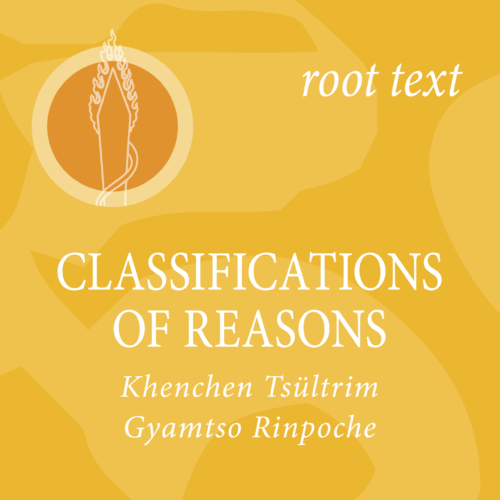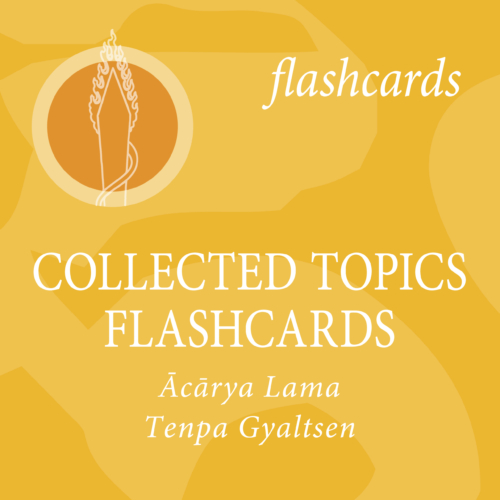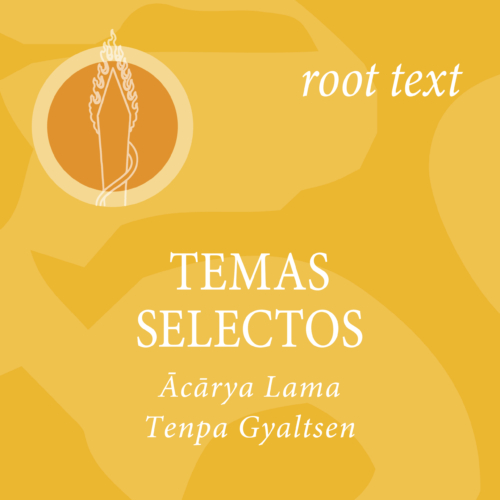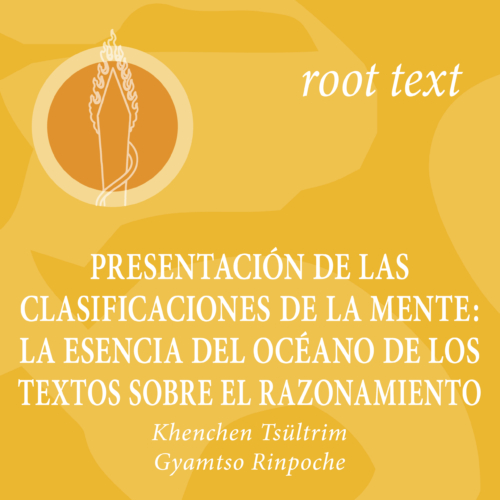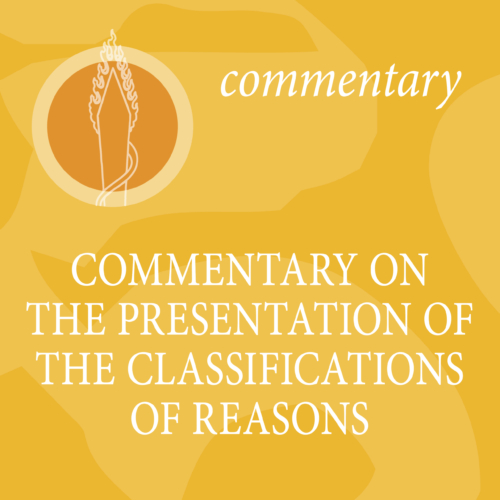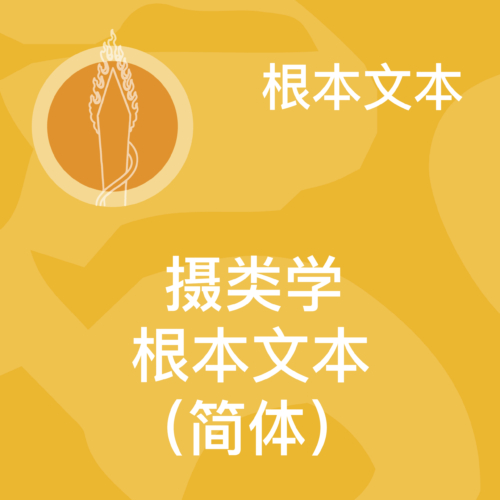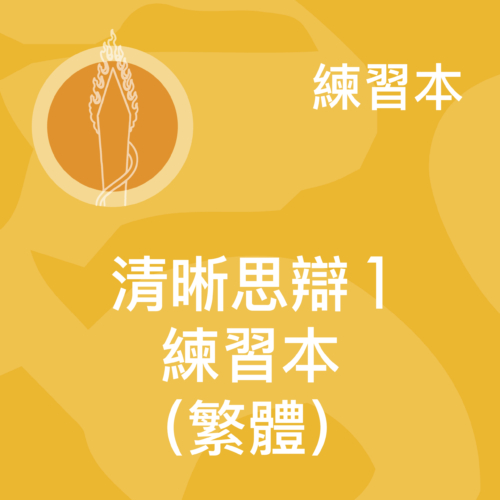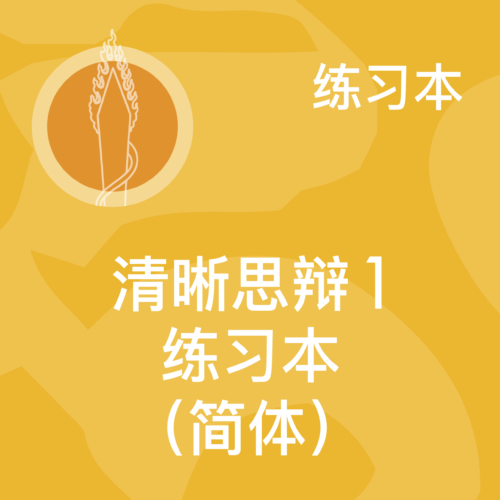- Also available as an eBook for Apple and Android devices.
- Limited supply.
- The hardcopy book is shipped from the US. International customers may wish to explore local booksellers, Shambala Publications, or Amazon to save on shipping cost.
-
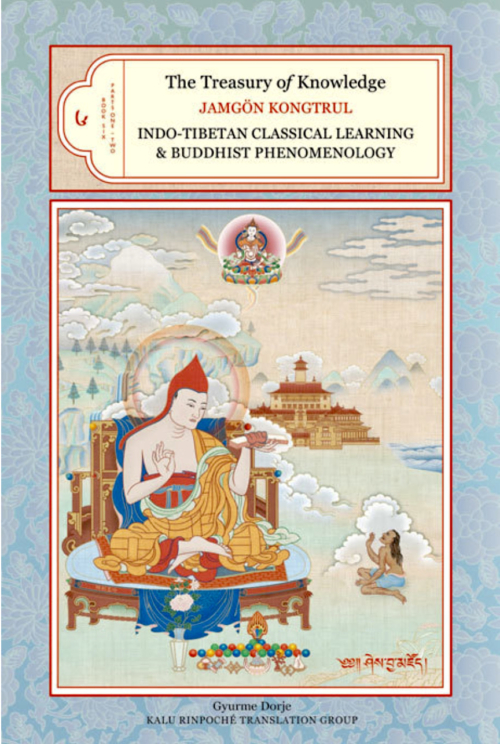
- Also available as an eBook for Apple and Android devices.
- The hardcopy book is shipped from the US. International customers may wish to explore local booksellers, Shambala Publications, or Amazon to save on shipping cost.
Author: Jamgön Kongtrul Lodrö Thayé Translator & Editor: Gyurme Dorje
Jamgön Kongtrul’s encyclopedic Treasury of Knowledge presents a complete account of the major lines of thought and practice that comprise Tibetan Buddhism. Among the ten books that make up this tour de force, Book Six is by far the longest—concisely summarizing the theoretical fields of knowledge to be studied prior to the cultivation of reflection and discriminative awareness. The first two parts of Book Six, contained in this volume, respectively concern Indo-Tibetan classical learning and Buddhist phenomenology. The former analyzes the traditional subjects of phonology and Sanskrit grammar, logic, fine art, and medicine, along with astrology, poetics, prosody, synonymics, and dramaturgy. The principal non-Buddhist philosophical systems of ancient India are then summarized and contrasted with the hierarchical meditative concentrations and formless absorptions through which the "summit of cyclic existence" can genuinely be attained. Part Two examines the phenomenological structures of Abhidharma—the shared inheritance of all Buddhist traditions—from three distinct perspectives, corresponding to the three successive turnings of the doctrinal wheel. -
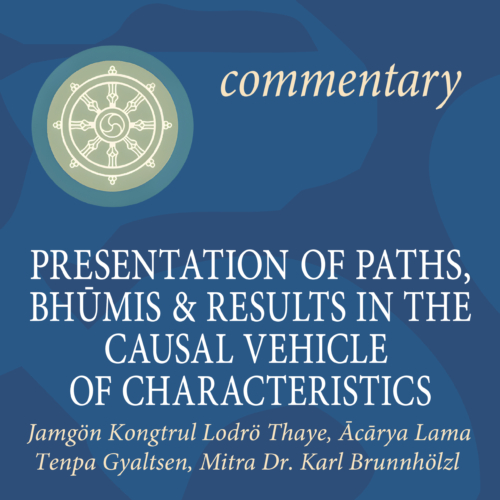
A commentary by Acharya Lama Tenpa Gyaltsen and Mitra Dr. Karl Brunnhölzl.
Root text translation by Mitra Dr. Karl Brunnhölzl.
Digital edition: https://publications.nitarthainstitute.org/product/commentary-on-the-presentation-of-paths-bhumis-results-in-the-causal-vehicle-of-characteristics-from-the-treasury-of-knowledge-ebook/ -
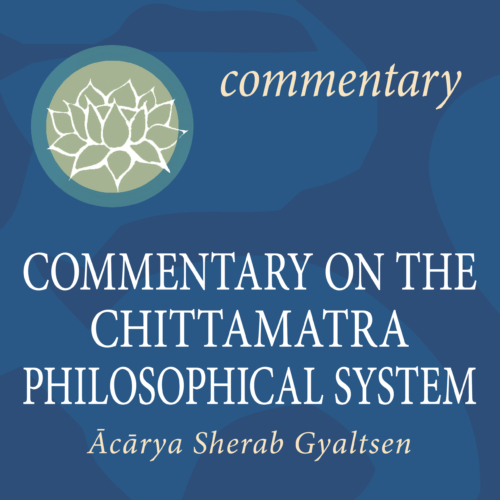
A commentary by Acharya Sherab Gyaltsen
Root verses and commentary on An Exposition Of The Presentation of the Philosophical Systems of the Great Vehicle An Exposition that Reveals the Presentation of the Philosophical Systems of the Chittamatrikas of the Great Vehicle by Dzogchen Ponlop Rinpoche. Translated by Karl Brunnhölzl, Tyler Dewar, and Scott Wellenbach. -
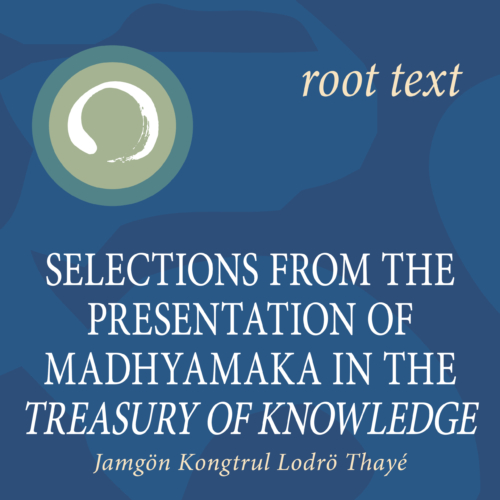
Author: Jamgön Kongtrul Lodrö Thayé Translator: Karl Brunnhölzl
A root text based on sections of Jamgön Kongtrul Lodrö Thaye’s Treasury of Knowledge. It systematically presents the Madhyamaka view of the two truths, the assertions of the subschools of the tradition, and formulates the emptiness reasonings. -
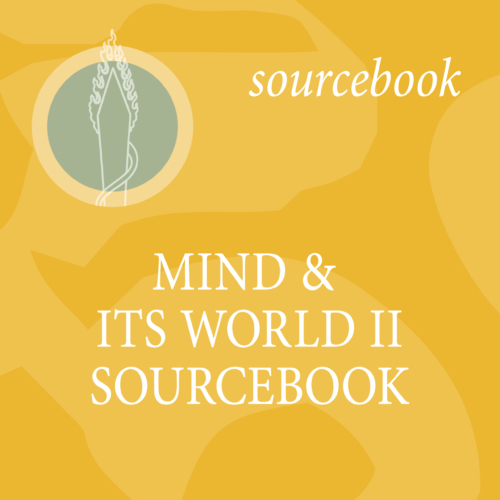 Also available as an eBook for Apple and Google. Mind and Its World II examines the theme of karma. It begins the study of causes and conditions as presented in Collected Topics, the twelve nidanas, or chain of interdependent origination, and the distinction between primary minds and mental factors. It includes a detailed presentation of the mental factors from the Classifications of Mind. Selected readings, analytical meditations, study questions, and review summaries are included in the sourcebook.
Also available as an eBook for Apple and Google. Mind and Its World II examines the theme of karma. It begins the study of causes and conditions as presented in Collected Topics, the twelve nidanas, or chain of interdependent origination, and the distinction between primary minds and mental factors. It includes a detailed presentation of the mental factors from the Classifications of Mind. Selected readings, analytical meditations, study questions, and review summaries are included in the sourcebook. -
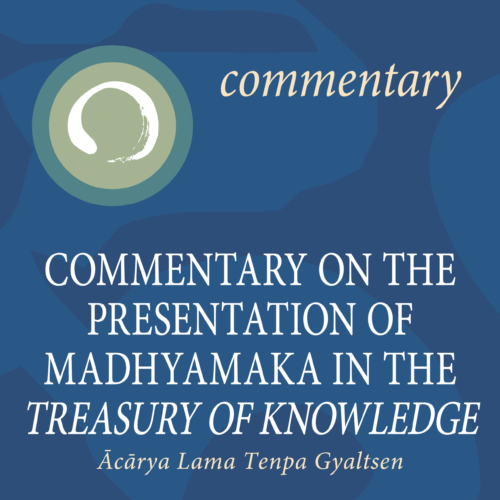
Author: Acharya Lama Tenpa Gyaltsen
A presentation of the philosophical tenets of the Madhyamaka tradition of the Mahayana. Based on sections of Jamgön Kongtrul’s Lodrö Thaye’s Treasury of Knowledge, this text focuses on the Madhyamaka presentation of the two truths, the views of the subschools of the tradition (Prasangika and Svatantrika), and the fundamental understanding of emptiness. Includes root text and commentary by Jamgön Kongtrul Lodrö Thaye, translated by Karl Brunnhölzl. -
Out of stock
 an enamel lapel pin with DHĪḤ, the seed syllable of Manjushri, bodhisattva of wisdom
an enamel lapel pin with DHĪḤ, the seed syllable of Manjushri, bodhisattva of wisdom -
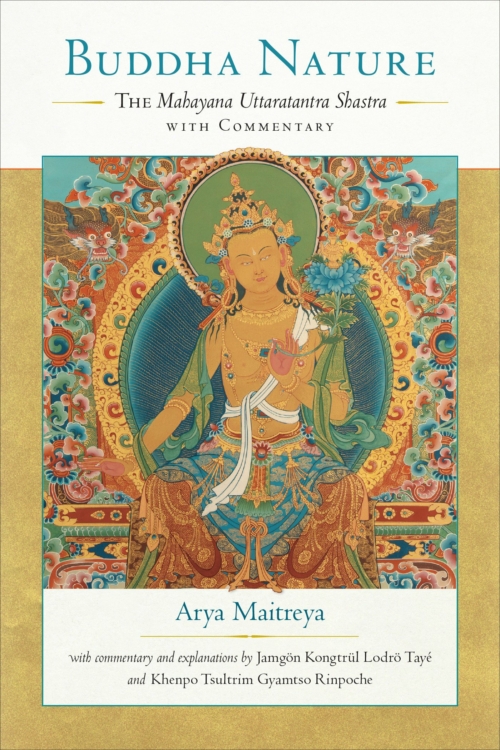
- Also available as an eBook for Apple or Android devices.
- The hardcopy book is shipped from the US. International customers may wish to explore local booksellers or Amazon.com to save on shipping cost.
Buddha Nature: The Mahayana Uttaratantra Shastra with Commentary by Maitreya, Jamgön Kongtrül Lodrö Tayé and Khenpo Tsültrim Gyamtso Rinpoche
Author: Arya Maitreya Commentary: Jamgön Kongtrül Lodrö Tayé and Khenpo Tsültrim Gyamtso Rinpoche Translator: Rosemary Fuchs
All sentient beings, without exception, have buddha nature—the inherent purity and perfection of the mind, untouched by changing mental states. Thus there is neither any reason for conceit nor self-contempt. This is obscured by veils that are removable and do not touch the inherent purity and perfection of the nature of the mind. The Mahayana Uttaratantra Shastra, one of the “Five Treatises” said to have been dictated to Asanga by the Bodhisattva Maitreya, presents the Buddha’s definitive teachings on how we should understand this ground of enlightenment and clarifies the nature and qualities of buddhahood. This seminal text details with great clarity the view that forms the basis for Vajrayana, and especially Mahamudra, practice. -
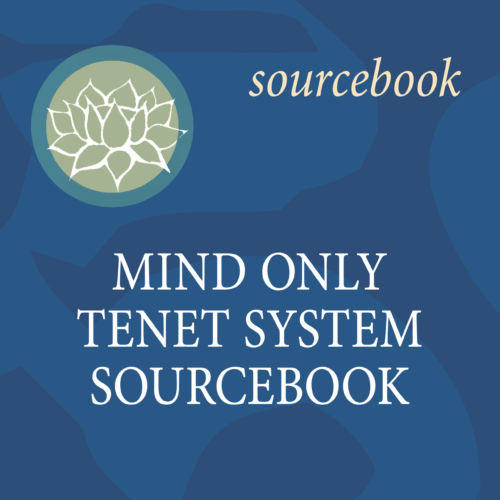 This sourcebook offers a systematic presentation of the Mind Only (Cittamātra) tenet system, one of the principal Mahāyāna philosophical schools. The Mind Only school emphasizes the doctrine that the subjective and objective poles of perception are not different in substance, but mental in nature. Specific topics include discussions on perception, the fundamental notion of “mind only,” the three natures, self-awareness, and the all-base consciousness. Also included is a brief discussion of the paths and the fruition. Selected readings, analytical meditations, study questions, and review charts are included in the sourcebook. Includes root text written by Acharya Lama Tenpa Gyaltsen.
This sourcebook offers a systematic presentation of the Mind Only (Cittamātra) tenet system, one of the principal Mahāyāna philosophical schools. The Mind Only school emphasizes the doctrine that the subjective and objective poles of perception are not different in substance, but mental in nature. Specific topics include discussions on perception, the fundamental notion of “mind only,” the three natures, self-awareness, and the all-base consciousness. Also included is a brief discussion of the paths and the fruition. Selected readings, analytical meditations, study questions, and review charts are included in the sourcebook. Includes root text written by Acharya Lama Tenpa Gyaltsen. -

ROOT TEXT
Madhyamaka is a potent and universally accessible means of calming our suffering and awakening to our innate wisdom. The Center of the Sunlit Sky artfully rescues this brilliant teaching from its unwarranted reputation for intellectual opacity and reinstates it as a supremely practical tool kit for everyday living. The aim of this book is to take Madhyamaka out of the purely intellectual corner into which it unjustly gets boxed. It is an attempt to show how Madhayamaka actually addresses and works with all of our experiences in life. The book follows the original Indian sources as well as the standard commentaries on Madhyamaka in the Kagyu School of Tibetan Buddhism. At the same time, these materials are adapted for a contemporary audience, combining the familiar sharpness of Madhyamaka reasonings (launching a massive assault on our cherished belief systems) with exploring the practical relevance of the Madhyamaka way of mind training. Also available as an eBook for Kindle devices. Note that the hardcopy book is shipped from the US. International customers may wish to explore local booksellers or Amazon.com to save on shipping cost. -
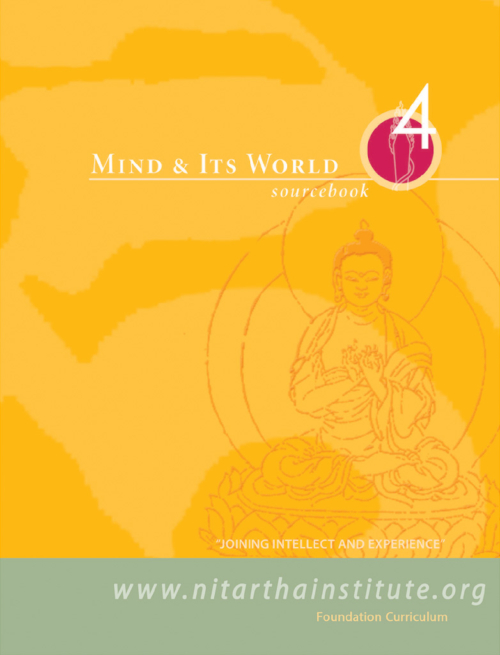
For Self-pace Online Course, students will be using the Mind and Its World IV, Provisional Draft; students must agree with the following policy before placing the order:
PROVISIONAL DRAFT COURSEWARE POLICY & ELECTRONIC FILE SHARING ARRANGEMENT:
- The cost of the Mind and Its World IV, Provisional Draft in the form of a PDF document is USD $23.10 and non-refundable. This amount will serve as a deposit payment towards the purchase of the final published version of the text. A discount coupon code will be issued to you for the purpose of purchasing the final version, valid for one year after the publication of the final text. Note: The coupon cannot be transferred to another person, it cannot be used to purchase other texts, and not valid for any ebook versions.
- You may use the Mind and Its World IV, Provisional Draft PDF for the duration of the class. However, once the course has concluded, usually determined by the expiration of access to the course video and audio recordings, you MUST delete the PDF file from your computer, as well as delete the email containing the PDF file attachment.
- If you prefer to work with a hardcopy of this text, you are welcome to print a copy for your own personal use,and would also need to be destroyed after use.
- At the end of the course, we will send an email reminder. At that time, you will be required to confirm by replying to the email, stating that the PDF file and hard copy have been deleted. Or, you may also proactively inform us that they have been deleted by sending an email to publications@nitarthainstitute.org
- If you prefer to not purchase the final version of the text, you are still required to delete/destroy the Mind and Its World IV, Provisional Draft , and no refund will be issued for deposit payment you made to access the Mind and Its World IV, Provisional Draft .
- If you decide to purchase this text, it fully means you have understood and agree with this policy.
- Once we receive your website order, we will email the PDF to your email address indicated in the website order. Please use the same email as the one you used for registration to Nitartha course. Please be allow 72 hours for processing.
For questions, please email us at publications@nitarthainstitute.org
Mind and Its World IV examines the two Hinayana philosophical tenet systems: the Vaibhashika and Sautrantika schools. Specific topics include the definitions of the two schools, a discussion of their subschools, an in-depth examination of their presentations of the process of perception and objects of knowledge. Also included is a description of the paths and fruition. Selected readings, analytical meditations, study questions, and review summaries are included in the sourcebook. -
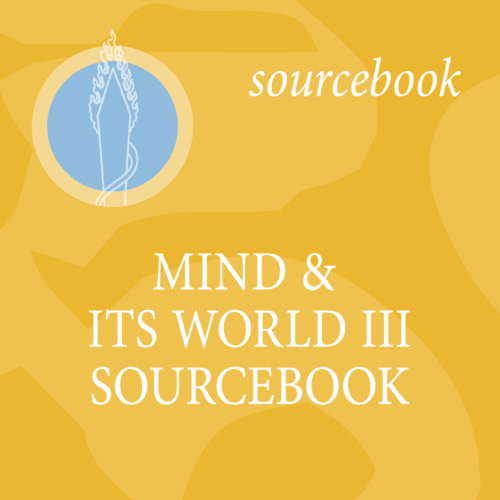
This version is for Self-Paced Online Course (SPOC) only. The UPDATED version for non Self-Paced Online Course will be available in the Fall 2023.
Mind and Its World III first concludes the investigation into causes and results as presented in Collected Topics. It then turns to the analysis of the ways in which mind cognizes phenomena, particularly the ways in which conceptuality functions, by investigating the modes of engagement from Classifications of Mind and the methods that lead to cognition from Collected Topics. Selected readings, analytical meditations, study questions, and review summaries are included in the sourcebook. Also available as an eBook for Apple or Android devices.
